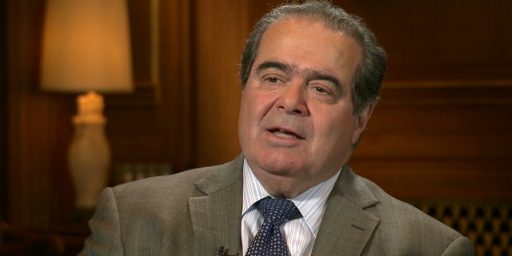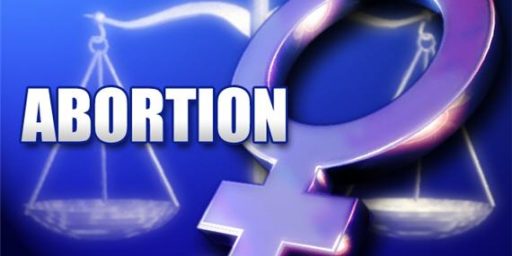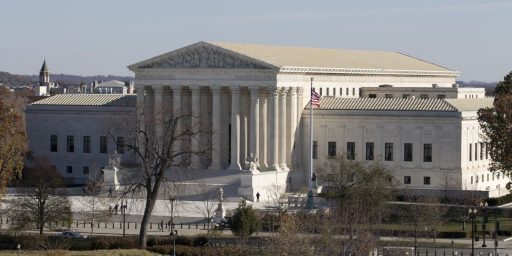Supreme Court Upholds Partial Birth Abortion Ban
The Supreme Court has upheld a federal ban on partial birth abortions.
The Supreme Court upheld the nationwide ban on a controversial abortion procedure Wednesday, handing abortion opponents the long-awaited victory they expected from a more conservative bench. The 5-4 ruling said the Partial Birth Abortion Ban Act that Congress passed and
President Bush signed into law in 2003 does not violate a woman’s constitutional right to an abortion.The opponents of the act “have not demonstrated that the Act would be unconstitutional in a large fraction of relevant cases,” Justice Anthony Kennedy wrote in the majority opinion. The administration defended the law as drawing a bright line between abortion and infanticide.
The decision pitted the court’s conservatives against its liberals, with President Bush’s two appointees, Chief Justice John Roberts and Justice Samuel Alito, siding with the majority. Justices
Clarence Thomas and Antonin Scalia also were in the majority.It was the first time the court banned a specific procedure in a case over how — not whether — to perform an abortion.
This strikes me as a commonsensical decision. Paradoxically, however, the ruling will likely politically disadvantageous to conservatives. It simultaneously takes away the lowest hanging fruit in the abortion debate–only the staunchest abortion fans can side with jamming scissors into a baby’s brain as he’s being delivered–and undermines the “activist judges” argument.





This is a commonsense decision, and you are correct in that it will disadvantage conservatives. In addition to those things you listed, it will energize the liberal base to elect representatives and executives who will enact the policies they want.
Still, this begins put the decision into the branches of government where it belongs; abortion should not now be nor should it ever have been a constitutional issue.
Great news!!!
You think it belongs with the federal government rather than the states?
I said “branches,” meaning executive and (primarily) legislative, as opposed to judicial. Unquestionably the federal government has the constitutional power to regulate medical procedures (though Thomas hinted that this was not a valid exercise of federal power, I think 7-8 other justices would disagree, constitutionality of the substance notwithstanding). Whether it chooses to do so is up to our elected representatives in Congress.
Personally, I think 50 different solutions to a question like whether a medical procedure should be permissible is an asinine method for enacting either policy or a sustainable enforcement thereof (particularly when you consider that the right to travel is enshrined in the Constitution). However, under federalist principles, the states have every right to enact policies in the absence of a federal override, and I suspect that such a thing is exactly what will happen here.
Personally, I think 50 different solutions to a question like whether a medical procedure should be permissible
There are variations in regulations on other medical procedures between the states right now, what exactly makes this one special?
Um…this is a federal override.
I agree that this had the potential to take some steam out of the conservative side on the abortion debate. However, the Democrats are rushing to condemn this eminently sensible decision as a great blow to women’s rights. I can’t believe that Democrats defending a law that bans “jamming scissors into a baby’s brain” is going to help them politically.
If I’m wrong and it does, then heaven help us all.
Nothing. My point is that regardless of how one feels about the wisdom of a given ban on certain medical treatments or procedures, if the state next-door can legalize it, what exactly is the point?
Indeed it is. But it is no less restrictive on states than was the previous judicially-enacted federal override requiring them to allow all abortions. And because it is not justified by constitutional principles, it is much easier to change through the democratic process.
Nothing. My point is that regardless of how one feels about the wisdom of a given ban on certain medical treatments or procedures, if the state next-door can legalize it, what exactly is the point?
The point is that the state can decide what they want to legalize and what they don’t-the point is that the state makes that decision based on the desire of the residents in that state.
Sure there are going to be variations, but there are variations right now as it is, and those variations apply to procedures other than abortions, but nobody is taking the states to court over them.
One thing is not left to speculation when this “medical procedure” is performed,…It is obviously a Baby!